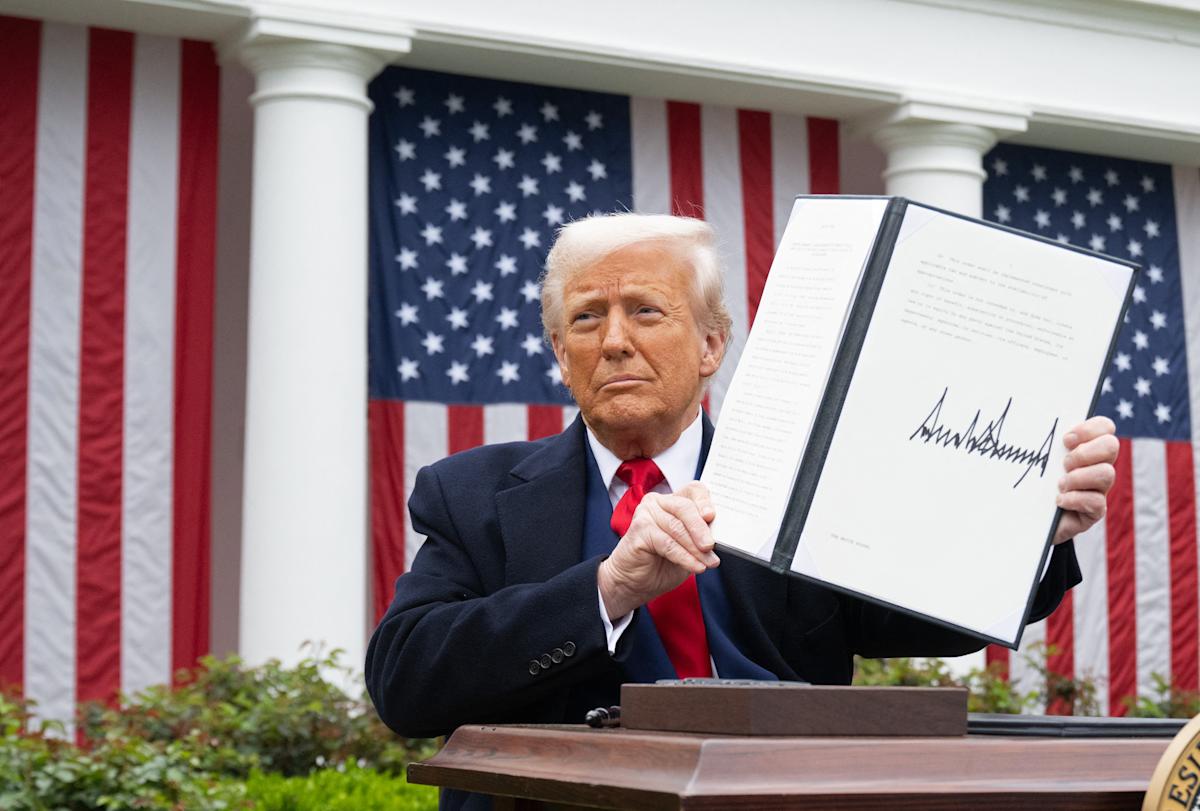During a back and forth with reporters on Thursday in the Oval Office, President Trump recognized that US consumers are “paying something” for tariffs.
“I think that they might be paying something. But when you take the overall impact, the Americans are gaining tremendously,” Trump said.
It was among the first acknowledgments from Trump that US consumers are footing at least some of the bill for his tariff regime, the bulk of which faced scrutiny before the Supreme Court this week.
In a closely watched case, a majority of the justices — both the court’s three liberal-leaning justices, as well as three more conservative ones — offered skeptical questions regarding the president’s authority to impose his most sweeping duties.
The court, which has a 6-3 conservative majority, has previously backed Trump in a series of decisions this year. But justices appeared skeptical of the president’s authority, casting doubt over the centerpiece of Trump’s second-term economic agenda.
US Treasury Secretary Scott Bessent, who was in attendance at Wednesday’s hearing, still said he “came away very, very optimistic.”
If the Supreme Court does not side with Trump, it’s widely expected that the administration will seek out alternative methods to carry out the US’s trade agenda.
Trump, meanwhile, has made clear he considers the case to be of paramount importance to his legacy, even as his administration touts the other legal avenues he could use to impose the duties.
Trump on Tuesday said the case is “literally LIFE OR DEATH for our country.”
Read more: What Trump’s tariffs mean for the economy and your wallet
The US and China reached a trade truce last week. The thaw means China will suspend additional export controls on rare earth metals and end investigations into US chip companies. Meanwhile, the US will pause some of Trump’s “reciprocal tariffs” on China for another year. On Thursday, the US pushed forward on plans to pause punitive measures on China’s shipbuilding industry.
China said on Friday it has designed a new rare earth licensing regime that could help speed up shipments.
The White House has said it will not allow the sale of Nvidia’s latest scaled-down AI chip to China, according to a report in The Information. This guidance would effectively shuts Nvidia out of China.
Trump announced on Thursday that the US and Uzbekistan had reached a trade and economic deal, with Uzbekistan to purchase and invest $35 billion in the next three years and more than $100 billion over the next 10 years in some US sectors.
A spat over an ad featuring the late Ronald Reagan continues between the US and Canada. The Canadian prime minister said recently he apologized to Trump over the ad.
LIVE 25 updates
